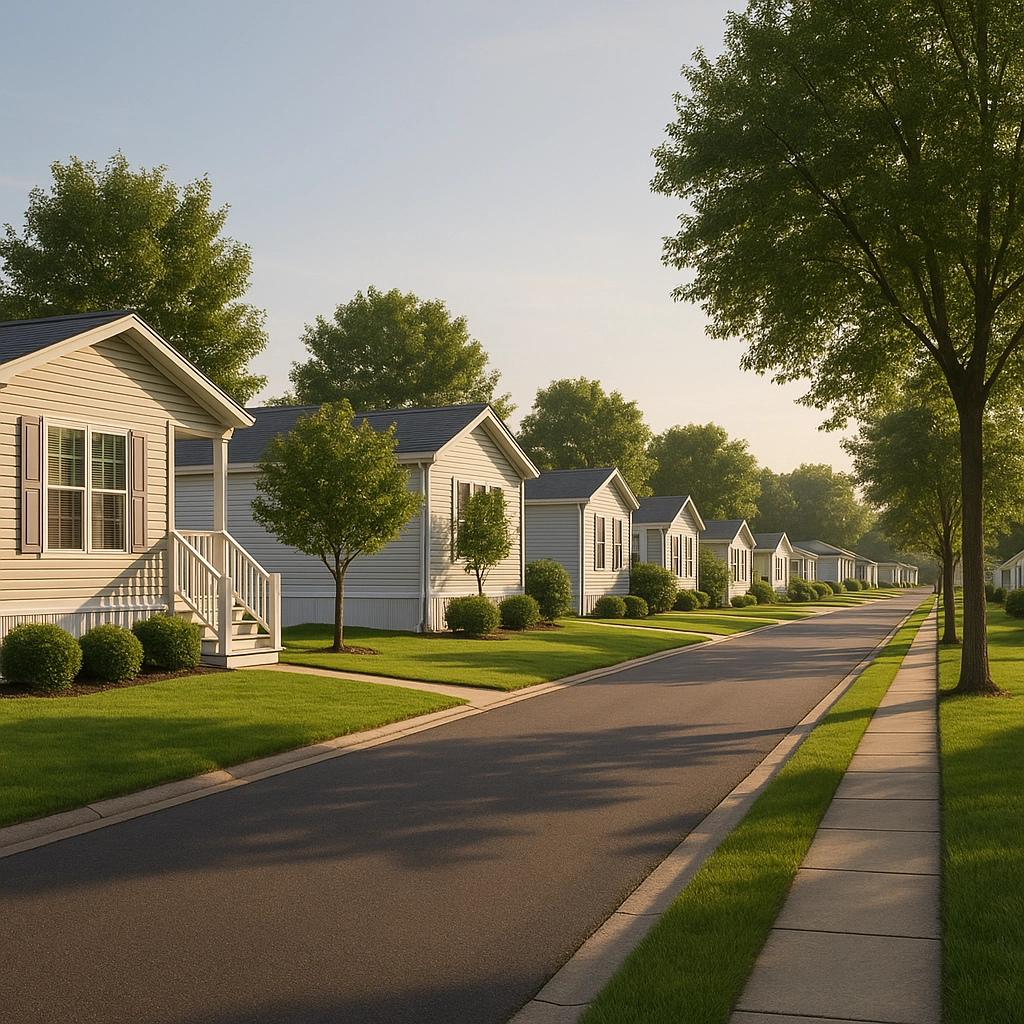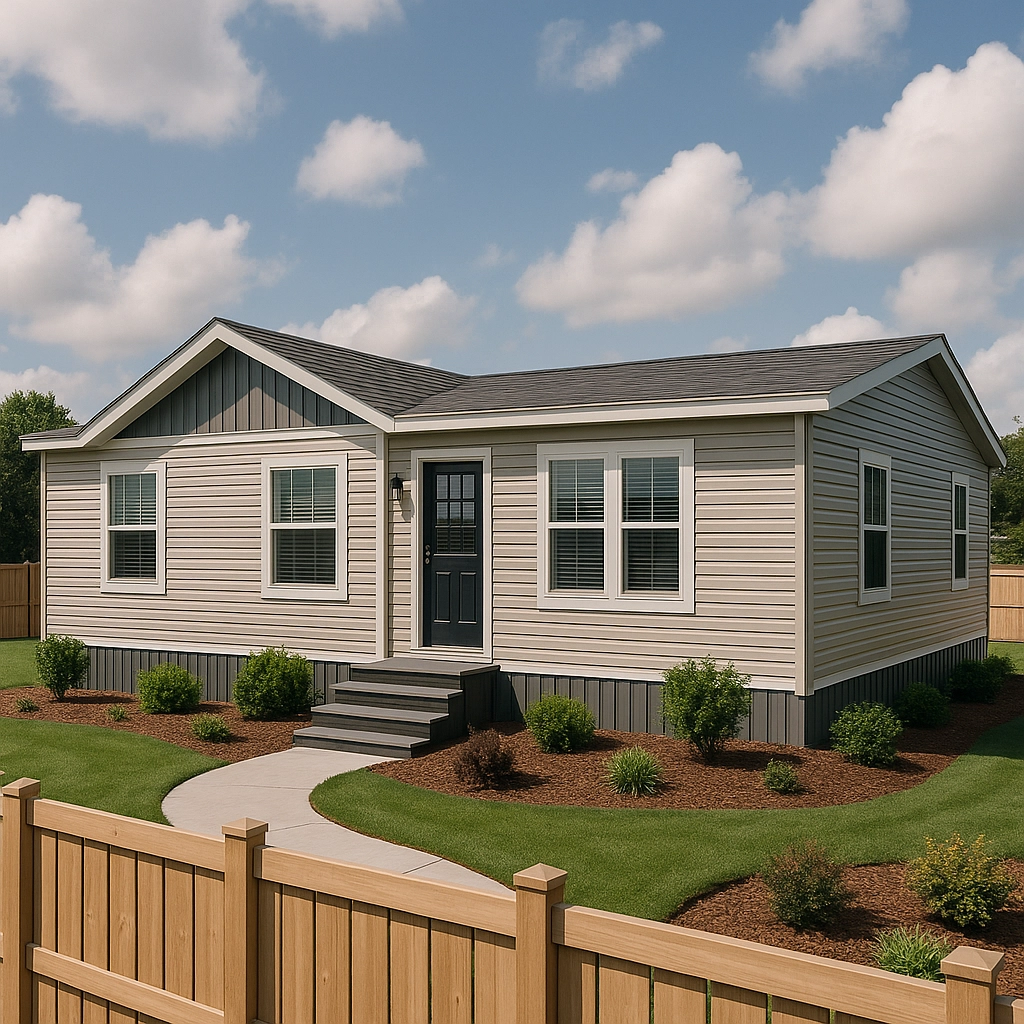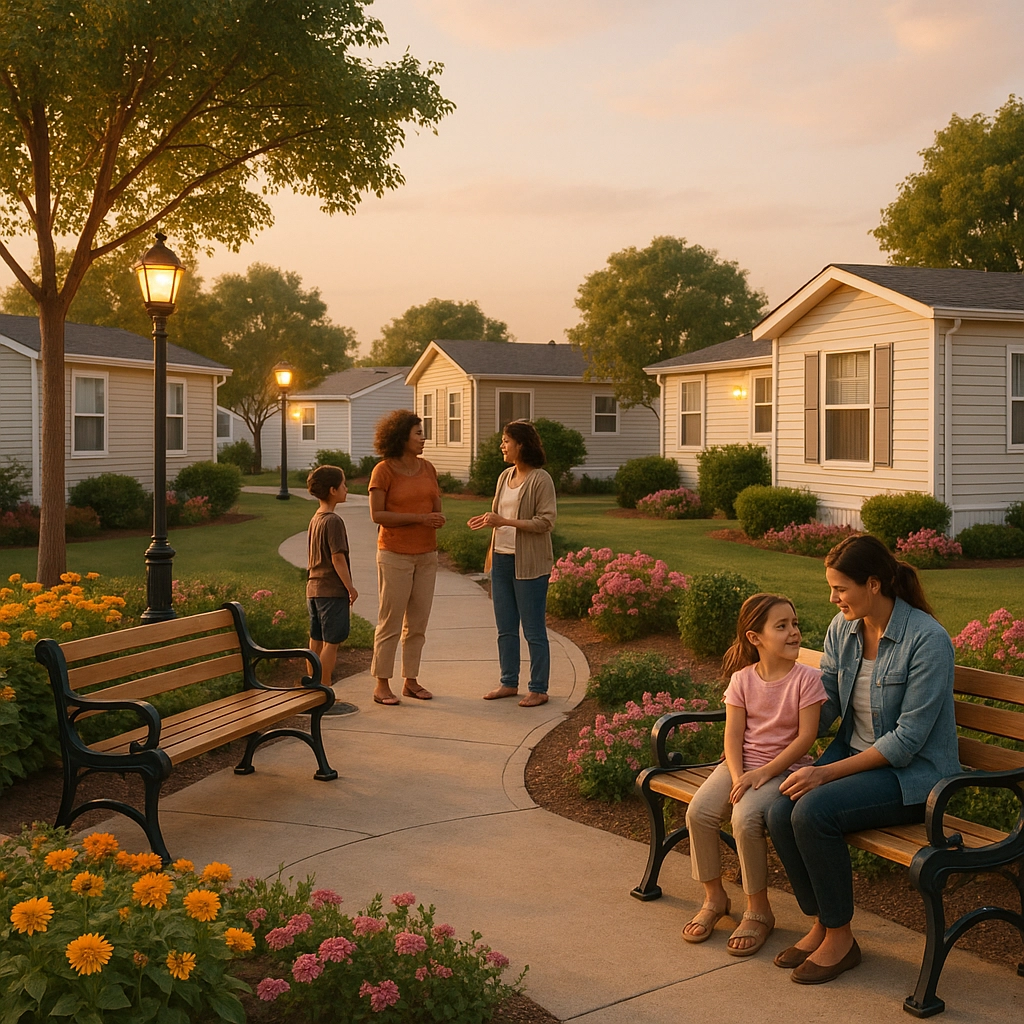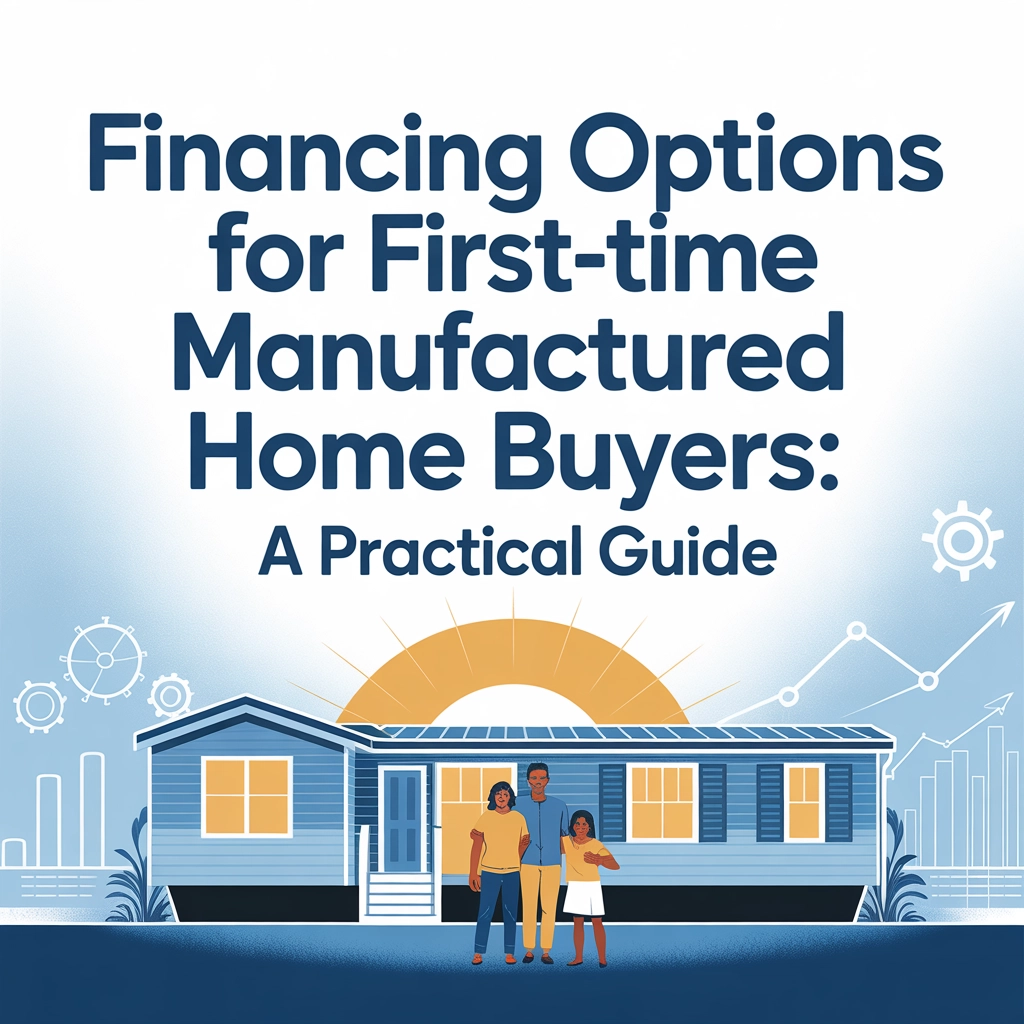Introduction: Why Manufactured Homes Are a Smart Option for First-Time Buyers
Buying your first home is a big step, and for many, a manufactured home offers the perfect blend of affordability and comfort. Built in controlled factory environments and constructed to national HUD standards, manufactured homes (sometimes called mobile homes) provide a solid path to homeownership—no matter your starting point.
But when it comes to financing, the process is different from buying a traditional, site-built house. To set you up for success, let’s break down the loan types, eligibility factors, application steps, and smart strategies designed for first-time buyers.

Understanding Your Financing Choices: Chattel Loans vs. Mortgage Loans
Before diving into specific programs, it helps to understand the two main categories of financing for manufactured homes:
- Chattel Loans: Think of these the way you would a car loan—the home is considered personal property. This is the most common route if you’re placing your home in a community or park and not buying the land.
- Mortgage Loans: If your manufactured home is permanently placed on land you own (or are buying), you may qualify for conventional mortgage-style loans with better rates and longer terms.
How your home is classified (personal property or real property) shapes your options, interest rates, and monthly payments.
Government-Backed Loans: Making Homeownership Possible
FHA Loans for Manufactured Homes
The Federal Housing Administration (FHA) makes financing accessible for first-time buyers—even if your credit isn’t perfect.
FHA Title I Loan:
- Use it for a home, a lot, or both.
- You don’t need to own the land (but will pay lot rent).
- Lower credit score and down payment requirements—it’s great for buyers starting out or with less savings.
FHA Title II Loan:
- Requires placing the home on a permanent foundation and classifying it as real estate.
- Must meet specific HUD standards (built after 1976 with all inspection tags).
- Offers competitive rates and down payments as low as 3.5%.
For both programs, homes must be your primary residence.
VA Loans
If you’re a veteran, active military, or a qualifying spouse, VA loans offer attractive benefits:
- Up to 100% financing (that’s right: $0 down payment in most cases!)
- Competitive rates and no private mortgage insurance (PMI)
- The home must be permanently affixed to land you own and meet safety and HUD requirements.
See more details at the VA’s Home Loans page.
USDA Loans
Live in a rural area? The U.S. Department of Agriculture (USDA) helps with low or zero down payment loans for homes in eligible locations.
- Must be on a permanent foundation
- Buyer income and home location must fit USDA guidelines
- Loans have favorable terms for qualifying families
These government-backed options open doors for first-time buyers who might face barriers to traditional loans.

Conventional Financing: Fannie Mae, Freddie Mac & More
Fannie Mae MH Advantage
- Low down payments (as little as 3%)
- 30-year repayment and typically lower rates
- The home must meet stricter standards (permanent foundation, certain features like a driveway or energy efficiency upgrades)
- Available to buyers using the home as their primary residence
Freddie Mac’s CHOICEHome & Home Possible Programs
- Similar to Fannie Mae but with their own standards for home types and buyer eligibility
- May allow for lower down payments and flexible credit requirements
Credit Unions & Local Banks
Additionally, some credit unions, community banks, and local lenders offer in-house manufactured home mortgages—always ask about all your options!
Portable & Chattel Loans: Pros, Cons, and When They Make Sense
Chattel (or personal property) loans are the go-to for homes placed in manufactured home parks or where you don’t own the land beneath your home.
Pros:
- Faster approval (sometimes same day)
- Lower up-front fees
Cons:
- Higher interest rates (sometimes 1–3% above mortgage rates)
- Shorter loan terms (often 10–20 years)
- May not build as much long-term equity
chattel loans work best if you want a quick, simple loan, plan a shorter stay, or need time to later move the home to land you buy.

Eligibility, Docs, and Credit: What First-Time Buyers Should Know
What Lenders Look For
- Credit Score: FHA may accept scores as low as 580; conventional lenders prefer 620+
- Debt-to-Income (DTI) Ratio: Typically, DTI below 43% is preferred
- Down Payment: FHA (3.5% min.), Conventional (5–10%+), Chattel (10%+)
- Verifiable Income: Recent pay stubs, tax returns
- Proof of Identity and Residence: ID, Social Security card, proof of current address
- Purchase contract (for the home and/or land)
- Title details for the home
- HUD labels/VIN numbers (to prove the home was built to code)
Property Factors
- Permanent, code-compliant foundation for mortgage-style loans
- Title cleared for conversion from personal to real property (if needed)
- Community/park rules: Some parks have lender restrictions—always ask ahead!
The Step-by-Step Application Roadmap
- Decide on Your Setup: Will you buy land, move into a community, or both?
- Check Your Credit: Clean up errors and pay down debts to boost your score.
- Get Prequalified: Approach lenders who specialize in manufactured homes.
- Choose Your Home: Review HUD labels, title, and condition.
- Gather Documents: Income proofs, IDs, and home details.
- Apply for Your Loan: Work closely with your selected lender.
- Finalize Foundation & Title (if needed): This might involve extra inspections or contractor work.
- Close, Insure, and Move In: Celebrate your new address!
Smart Strategies to Save Money
- Shop Lenders: Compare at least three loan offers.
- Negotiate: Don’t be shy about asking for closing cost help—especially if buying from a dealer or in a park.
- Explore Down Payment Assistance: Your local housing authority or even nonprofits might help.
- Watch the Fine Print: Look at the APR, not just the interest rate. Consider total costs, including lot rent, insurance, and park fees.

Special Cases: Private Land, Parks, and Refinancing
Buying in a Park vs. On Your Own Land
On Private Land:
- More loan choices (mortgages)
- Better odds of appreciation and resale value
- You control zoning and site improvements
In a Park/Community:
- Lower initial purchase costs
- Lot rent adds to your monthly expenses
- Financing may be limited to chattel loans unless you also buy the lot
Refinancing Paths
If you start with a chattel loan and later buy land, you may be able to convert your loan into a traditional mortgage with better rates—especially if your credit has improved or you add a permanent foundation.
Grants & Down Payment Assistance
- State or local first-time homebuyer programs
- HUD-certified housing counselors (free guidance)
- Programs may require real property status for full benefit
For more details about buying land and homes together, see How to Purchase a Manufactured Home and Land.
Comparing Costs & Long-Term Impact
- Chattel Loans: Higher rate, pay more interest, build equity slower
- Mortgages: Lower rate, build equity, lower monthly costs over time
Watch for:
- Property taxes (if home is real property)
- Manufactured home insurance vs. homeowners insurance
- Lot rent and park rules
- Maintenance needs (roof, HVAC, skirting)
A $100 difference in lot rent or insurance per month adds up to $1,200 per year—plan your budget for the long haul!

Action Checklist for First-Time Manufactured Home Buyers
- Decide if you want to buy land now or later
- Check your credit and improve as much as possible
- Organize income, asset, and ID documents
- Interview at least three lenders—including one manufactured home specialist
- Ask park or community managers about financing restrictions
- Compare APRs, fees, and long-term costs
- Lock in insurance BEFORE you close
- Make a moving/utility setup plan early
Key Resources:
Final Thoughts & Next Steps
Manufactured homes open exciting possibilities for first-time buyers. Choose your loan carefully, keep a close eye on all costs—not just interest rates—and don’t hesitate to ask for help. The journey might be a little different than buying a traditional home, but with smart planning and the right support, you’ll be on the path to affordable homeownership in no time.
Ready to get started?
Check your credit, gather your docs, and explore lenders who know manufactured homes—or reach out to Piney Woods for community-specific advice!


